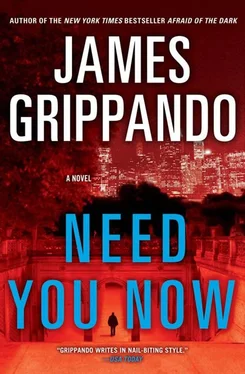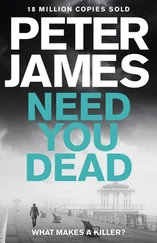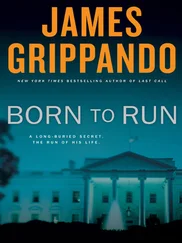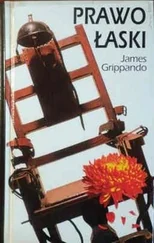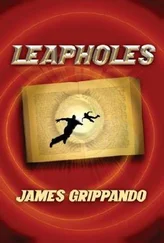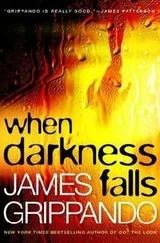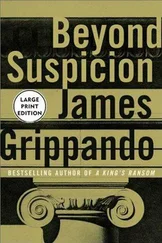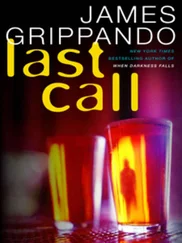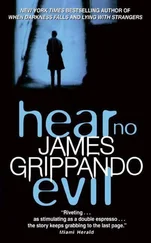The waitress brought our coffee, which was a good thing, because it forced Lilly to keep her composure. The waitress left, and Lilly listened as I explained my deal with the FBI-cancer treatment for my father in exchange for any information I might find that Cushman was laundering money through BOS/Singapore.
“You mean information that I was helping Cushman launder money through BOS/Singapore,” said Lilly.
I was getting no wiggle room. “Well, yes.”
“So, the bottom line hasn’t changed. You were spying on me.”
“I didn’t even know you when I cut the deal. Everything changed after I met you. And once we started seeing each other, I never lied about my feelings for you.”
“ ‘Love at first sight’ was not a lie?”
“Lilly, don’t count this against my feelings for you now, but I never told you it was love at first sight.” I nearly gasped, not because of my honesty, but because I was starting to sound like a reject from The Bachelor .
“I know you didn’t,” Lilly said, lowering her eyes. “When I said love at first sight, maybe I was channeling my own feelings to you.”
She looked at me, and I at her, and after a moment I could see that we had come to the same critical realization: this was nauseating.
“ Oh, baby, I need your cow ,” I sang.
Lilly smiled, and then we shared a little laugh. I wanted to reach for her hand, but the feel-good moment hadn’t made our problems go away.
“So,” said Lilly. “The memo?”
She was back to the heart of the matter, but her tone was softer. I told her about the trip to Boston to see my father, the conversation with Andie Henning.
Lilly asked, “Do you think Agent Henning will actually show you the decrypted memo?”
“There’s a chance,” I said. “But there’s at least an equal chance that my tech guy will decode the encrypted version I already have.”
My BlackBerry vibrated. I didn’t recognize the number, so I let it ring through to voice mail. “Lilly, I know this isn’t a pleasant memory, but I wanted to ask you about the day you were attacked. When you actually saw the memo.”
“We went over this the last time we were here.”
“I know, but so much has changed. Tell me not just what you read, but how he showed it to you, what he said to you. Everything.”
She took a breath, then let it out. “Okay. It was my last week in Singapore. I went for a run early, like I always did, before it got too hot. There’s a path by the beach that’s really beautiful when the sun comes up. I was in the zone, cruising along, and suddenly, I was down on the ground, my face in the sand. Before I really knew what was happening, he was sitting on my spine and I was pinned underneath him. My instinct was to fight back, but I was tired from the run, and he was way too strong. When he grabbed me by the hair, it was like he was going to pull it right out. Then I felt the gun at the back of my head.”
This version of events had more details than the one before, and her voice was starting to quiver. I gave her a moment.
“Then what?”
“It was a lot like what happened to you in Times Square. He said it was time to turn over the money that was funneled to Cushman through BOS.”
“Did you say anything?”
“I said I didn’t know a thing about Cushman. That’s how I ended up with the powder burn I showed you the last time we sat at this table. He pulled the trigger, jerked the gun away just enough for the bullet to brush past my neck. The silencer probably kept me from going deaf, but it told me I was dealing with someone who knew what he was doing.”
It was more than “a lot like” what had happened to me. It was virtually identical. “How did the memo come into it?” I asked.
“I kept saying over and over, ‘It’s not me, you’ve got the wrong person!’ He pulled my head up by the hair again and…” She swallowed hard, then continued. “I thought he was going to put a bullet in my head. But that was when he put the memo under my nose, literally, right in the sand.”
“You’re sure it was a Treasury Department memo?”
“It was on Treasury letterhead. I supposed it could have been a fake, but why would he forge it? He’d only be fooling himself.”
“Tell me everything you remember about it.”
“It was quick, so what I remember most is the part that mentioned me by name. Something like: ‘Treasury’s most promising lead as to concealment of proceeds from the Cushman fraud remains Gerry Collins’ banking activities at BOS/Singapore, and the key person of interest at BOS has been identified as Lilly Scanlon.’ ”
“Do you remember anything else?”
“Not really. He focused me on the key language. It wasn’t like he gave me time to read it from start to finish.”
My BlackBerry rang again, the same number as before. This time I realized it was Evan, so I begged Lilly’s pardon and answered.
“What’s up?”
“Got some good news,” Evan said.
“Tell me.”
He chuckled, then did a really bad imitation of a Russian spy: “I broke the code, comrade.”
B y midafternoon Andie was outside of Philadelphia. The small yellow house on the corner was old but well maintained, one of many just like it on this quiet, tree-lined street. It seemed perfect for a retired couple, except for the need to shovel four inches of new snow from the walkway. As Andie climbed the steps of the front porch, she noticed a plaque above the door from the Society of Former Special Agents of the FBI. L OYALTY, F RIENDSHIP, G OODWILL, it read. It reminded Andie of F IDELITY, B RAVERY, I NTEGRITY, the motto on her own shield-the same shield that Frank Scully had carried for twenty-five years. He was just beyond the bureau’s minimum retirement age of fifty, but well short of the mandatory cutoff at age fifty-seven.
He greeted Andie at the door, led her to the TV room, and offered her a seat. He took the other armchair, facing her.
“Thanks for meeting with me,” said Andie.
“You didn’t give me much choice.”
Scully was right. The phone conversation had been short and to the point. At first Scully had refused to talk about Tony Mandretti. Knowledge was power, however, and her mere mention of a familiar name had put the power in Andie’s hands.
Scully asked, “How did you find out about Manu Robledo?”
“Don’t worry,” she said. “Your secret is apparently safe within the FBI. I can’t find a single agent who even pretends to know about Robledo’s connection to Gerry Collins.”
Scully glanced at her sideways. He looked fit and younger than his years, more like an agent who would have worked right up until the moment he blew out fifty-seven candles, rather than take early retirement. “So if you didn’t get it from the inside, who told you?”
“Tony Mandretti,” she said.
“I don’t believe you. Tony would never crack.”
“He would if he thought his children were at risk.”
Scully fell silent, but his expression confirmed that she’d struck a chord.
“Is that what you told him?” he asked.
“I did,” said Andie, “because it’s true.”
“How do you even know Tony’s kids?”
“Because I’m the agent who carried out the money-laundering investigation at BOS that you drew up before retiring.”
“Ah,” he said, as if things were falling into place. “How close did you stick to the way I drew it up?”
She told him about her arrangement with Patrick, the promise of cancer treatment for Tony Mandretti in exchange for Patrick’s cooperation with the FBI. “At the time,” she went on to say, “I presumed that the bureau had targeted Patrick because his father was in jail for the murder of Gerry Collins.”
Читать дальше
